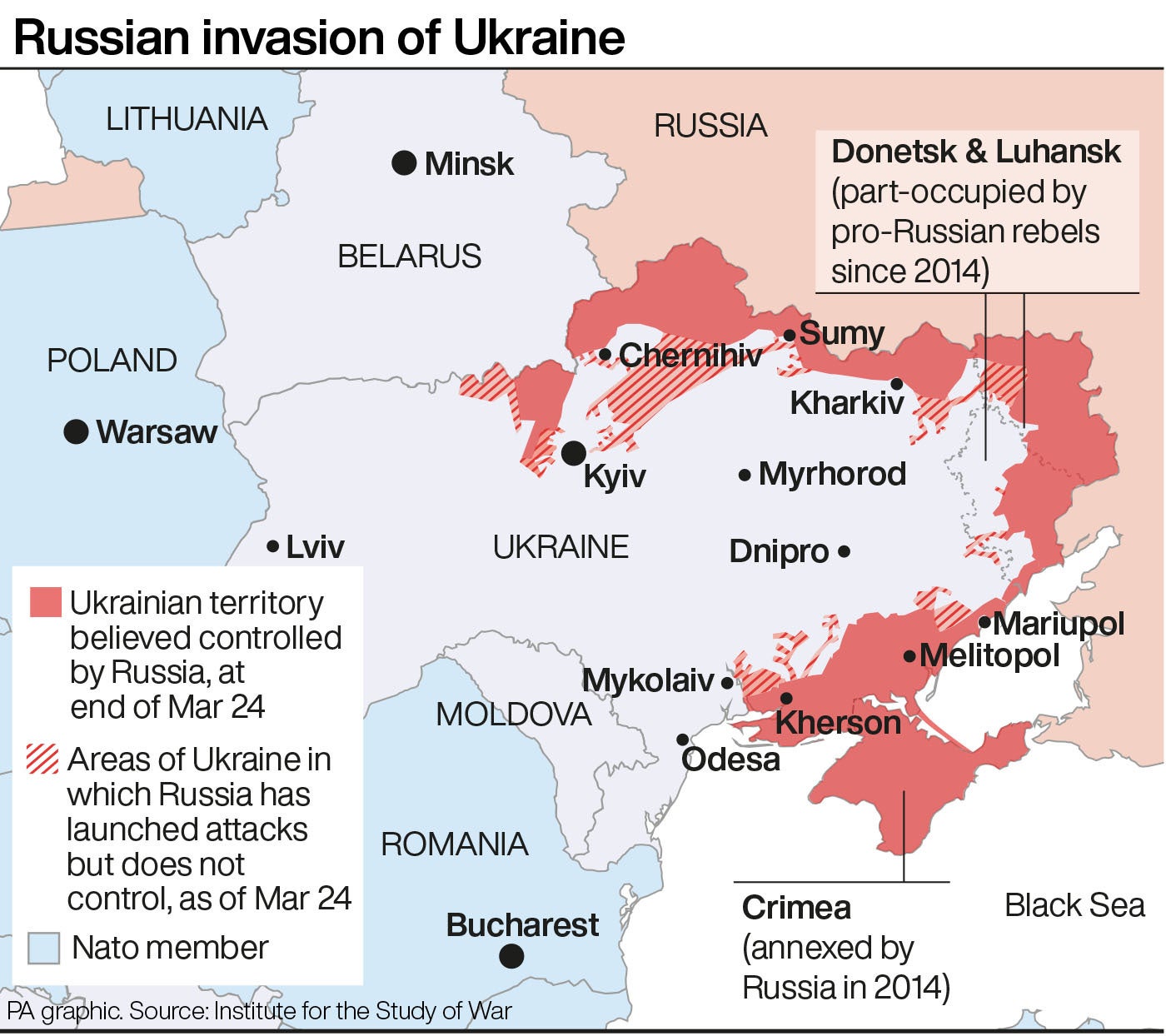Russian occupation of Chernobyl could send radiation across Europe, warns deputy Ukrainian PM
Iryna Vereshchuk also urges UN Security Council to take immediate steps to demilitarise zone
Ukraine’s deputy prime minister has warned about the risk of radiation at the Chernobyl power station, as she slammed Russian forces for “militarising” the exclusion zone around the station.
Iryna Vereshchuk demanded that the UN Security Council take immediate steps to demilitarise the zone, and dispatch a special mission to eliminate the risk of an accident at the site of the world’s worst civil nuclear disaster.
“The irresponsible and unprofessional actions of the Russian military [pose a] very serious threat not only to Ukraine but also to hundreds of millions of Europeans”, Ms Vereshchuk said while speaking to the media on Sunday.
She said that the Russian forces were transporting large amounts of old and badly maintained artillery at the site, creating a risk of damaging the containment structure built around the station’s wrecked fourth reactor after its explosion in 1986.
Ms Vereshchuk stressed that the damage could cause a significant amount of radioactive dust discharge in the atmosphere, leading to air contamination, affecting Ukraine and other European nations. She also criticised the Russian military for preventing firefighters from bringing under control a large number of fires in the zone.
“We, therefore, demand that the UN Security Council adopt immediate measures to demilitarise the exclusion zone around the Chernobyl station as well as dispatching a special mission to eliminate the risks of any repeat of the Chernobyl accident resulting from the actions of Russian occupying forces,” she said.
“The occupiers ignore these threats and continue to transport and store large quantities of ammunition in the immediate vicinity of the nuclear plants,” she said, adding that the forces were also transporting “dozens of tons of rockets, artillery shells, mortar ammunition” daily within a few hundred metres of the nuclear power plant’s confinement structure.
The claims made by the deputy prime minister, however, could not be immediately verified.

Russia, which gained control of the decommissioned Chernobyl station on 25 February, has previously denied putting the nuclear facility at risk.
The reactor at Chernobyl infamously melted down in April 1986 during a test, covering much of Europe in a radioactive cloud. Thousands of deaths were associated with the aftermath of the accident and the radiation it released.
At that time, Ukraine remained a part of the Soviet Union. For years, a highly protected 20-mile exclusion zone has existed around the site, which entombs a highly dangerous amount of nuclear material.
Earlier on Sunday, a Ukrainian official had warned that more than 10,000 hectares of forest are burning in the Chernobyl Exclusion Zone, adding that the fires have led to an increased level of radioactive air pollution with a threat to neighbouring European countries.
Lyudmila Denisova, commissioner of the Verkhovna Rada of Ukraine for Human Rights, attributed the fires to Russian combat in the region. She said 31 blazes have been recorded, as she called on the International Atomic Energy Agency (IAEA) to send firefighters and equipment to help tackle them.
Meanwhile, Russian forces have taken control of the town of Slavutych, which was created and built in the aftermath of the 1986 accident, said its mayor on Saturday, adding that three people were killed in clashes.
Additional reporting by agencies
The Independent has a proud history of campaigning for the rights of the most vulnerable, and we first ran our Refugees Welcome campaign during the war in Syria in 2015. Now, as we renew our campaign and launch this petition in the wake of the unfolding Ukrainian crisis, we are calling on the government to go further and faster to ensure help is delivered.
To find out more about our Refugees Welcome campaign, click here. To sign the petition click here. If you would like to donate then please click here for our GoFundMe page.
Join our commenting forum
Join thought-provoking conversations, follow other Independent readers and see their replies
Comments
Bookmark popover
Removed from bookmarks